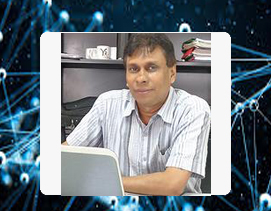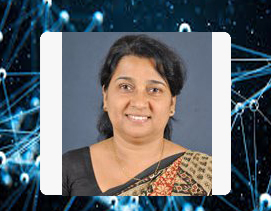A Comprehensive Study on Chronic Kidney Disease of uncertain Etiology
NRC Grant No: NRC TO 14-05
Research Institute: University of Peradeniya
Amount Funded: Rs. 49,300,000.00
Date of Awarded: 28th August 2014
End Date: 28th August 2019


Summary
The prevalence of Chronic Kidney Diseases (CKD) is rising globally and is attributed to an epidemic of diabetes mellitus. The trend in the developing countries appears to be chronic glomerulonephritis and diabetes contributing significantly to the increasing end stage renal disease. In Sri Lanka, the prevalence of CKD has been increasing over a period of 10-15 years in certain parts of the island. However, it is found to be different and are not associated with known risk factors. Therefore, this disease is described as Chronic Kidney Diseases with uncertain etiology (CKDu). The research conducted up to date reveal the CKDu appears to be confined to specific geographical areas of the country. High prevalence of the disease is observed in Medawachchiya, Girandurukotte, Kabithigollawa, Padaviya, Medirigiriya, Vunniya, Dehiattakandiya, Nikawewa, Hettipola and Polpithigama. Majority of the population in the affected areas are farmers and the decease seems to manifests commonly in males although evidence for the contrary has also been produced. The histological appearance of the kidney disease is ‘tubulo-interstitial’ which is commonly observed in toxic nephropathies. The disease process appears to mainly affect the proximal tubules and the interstitium giving rise to characteristic, recognizable pathohistological and clinical features.
After outbreak of the CKDu in Sri Lanka, large number of research studies has been conducted by various organizations and also identified several risk factors. Among the suspected nephrotoxic environmental factors attributed are high fluoride in drinking water, leaching aluminum from cooking utensils due to high fluoride water, algal toxin in water, arsenic in water due to use of agrochemicals, cadmium in water, fish and plants. Even though some studies suggested that heavy metals are the causative factor for CKDu, the fact that authors have not clearly explained the geographical biasness of the disease. Therefore, this aspect needs to be required further investigations. With systematic studies of populations for CKDu, in-depth histological, biochemical investigations, site investigations for geo-environmental analysis and other potential contributing factors; medical scientists, chemists and agriculturists would be in a better position to contribute towards the origin of the CKDu. Proper demarcation and mapping of the CKDu affected region, socio-economic study of the people living in the area and comparison of geo-environmental qualities with none CKDu areas are important for identifying the possible causative factors.
Objectives
- Retrospective cohort study
- Prospective cohort study (community surveillance study)
- Geo-environmental study
- Tissue culture study
Major Equipment Facilitated by Grant
- Inductively coupled plasma spectrometer
- Inverted Epifluoroscence microscope system
- Biochemical analyser
Research Team
Designation
Principal Investigator (PI)
Deputy Principal Investigator (DPI)
Co- investigator
Co- investigator
Co- investigator
Co- investigator
Co- investigator
Co- investigator
Co- investigator
Name
Prof. R. Chandrajith
Prof. S. Ranasinghe
Prof. O.A. Ileperuma
Prof. R. Sivakaneshan
Dr. B. Alexander
Dr. N. Nanayakkara
Dr. T. Abeysekera
Dr. S. Yatigammana
Prof. A.N. Navaratne
Institute
Department of Geology Faculty of Science University of Peradeniya
Department of Biochemistry Faculty of Medicine University of Peradeniya
Department of Chemistry Faculty of Science University of Peradeniya
Department of Biochemistry Faculty of Medicine University of Peradeniya
Department of Farm Animal & Production Health Faculty of Veterinary Medicine & Animal Science University of Peradeniya
Consultant Nephrologist Teaching Hospital, Kandy
University of Peradeniya
Department of Zoology Faculty of Science University of Peradeniya
Department of Chemistry Faculty of Science University of Peradeniya
